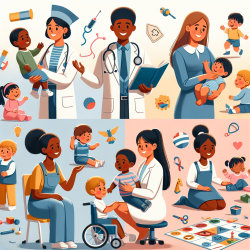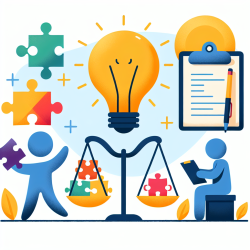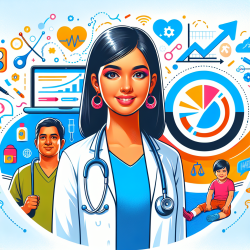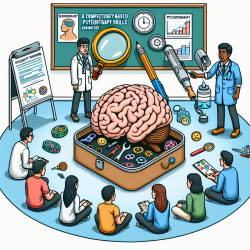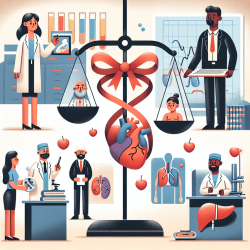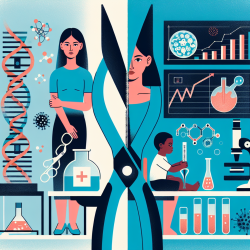Understanding Early Childhood Disabilities: A Global Health Perspective
Early childhood is a critical period for human development, and ensuring optimal growth during these years can significantly impact a child's future. The research article "Disabilities in Early Childhood: A Global Health Perspective" highlights the importance of identifying and supporting children with developmental disabilities, a topic that has gained traction in global health discussions, especially with the United Nations' Sustainable Development Goals (SDGs).
Key Findings and Implications for Practitioners
The research emphasizes the need for early identification and intervention for children at risk of developmental disabilities. Practitioners can enhance their skills by focusing on the following areas:
- Understanding Developmental Disabilities: Familiarize yourself with the definitions and classifications of developmental disabilities as outlined by the International Classification of Diseases (ICD) and the Individuals with Disabilities Education Act (IDEA). This understanding is crucial for accurate diagnosis and support.
- Utilizing New Tools: The Early Childhood Development Index 2030 (ECDI2030) by UNICEF is a tool designed to identify children who are "developmentally on track." While it primarily relies on parental assessments, practitioners should consider its limitations and supplement it with clinical observations and assessments.
- Advocating for Inclusive Education: The SDGs aim to ensure that all children have access to quality early childhood development and education. Practitioners should advocate for inclusive education policies that accommodate children with developmental disabilities.
Encouraging Further Research and Collaboration
To improve outcomes for children with developmental disabilities, practitioners should engage in ongoing research and collaboration. Consider the following strategies:
- Participate in Research Initiatives: Join global research collaborations, such as the Global Research on Developmental Disabilities Collaborators (GRDDC), to contribute to and learn from the latest findings in the field.
- Engage with Global Health Organizations: Collaborate with organizations like WHO and UNICEF to access resources and training programs that can enhance your practice.
- Promote Evidence-Based Practices: Implement interventions that are supported by empirical evidence and continuously evaluate their effectiveness in your practice.
Conclusion
As practitioners, it is essential to stay informed about the latest research and tools available to support children with developmental disabilities. By enhancing our skills and collaborating with global health organizations, we can contribute to better outcomes for these children and help achieve the inclusive education goals set by the SDGs.
To read the original research paper, please follow this link: Disabilities in Early Childhood: A Global Health Perspective.
